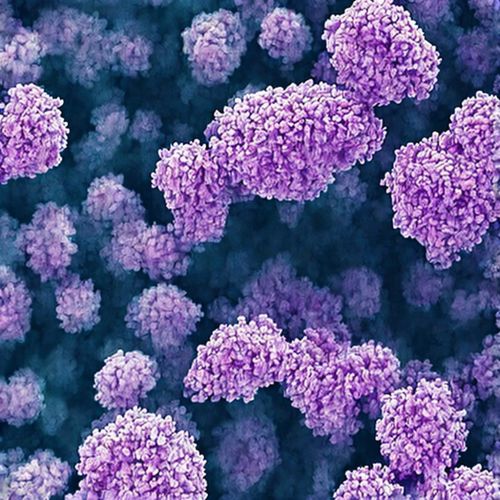Tumor necrosis factor
Introduction
Tumor necrosis factor (TNF) is a cell signaling protein (cytokine) involved in systemic inflammation and is one of the cytokines that make up the acute phase reaction. It is produced chiefly by activated macrophages, although it can be produced by many other cell types such as CD4+ lymphocytes, NK cells, neutrophils, mast cells, eosinophils, and neurons.
Structure
The primary structure of TNF is a type II transmembrane protein with homotrimeric configuration. The monomer of TNF is a protein of 233 amino acids in length. The soluble form of the cytokine is a homotrimer non-covalently linked, whereas the membrane form is a homotrimer linked by a single transmembrane domain.
Function
The primary role of TNF is in the regulation of immune cells. TNF, being an endogenous pyrogen, is able to induce fever, apoptotic cell death, cachexia, inflammation and to inhibit tumorigenesis and viral replication. Dysregulation of TNF production has been implicated in a variety of human diseases including Alzheimer's disease, cancer, major depression, psoriasis and inflammatory bowel disease (IBD).
Role in Disease
TNF promotes the inflammatory response, which, in turn, causes many of the clinical problems associated with autoimmune disorders such as rheumatoid arthritis, ankylosing spondylitis, inflammatory bowel disease, psoriasis, hidradenitis suppurativa and refractory asthma. These disorders are sometimes treated by using a TNF inhibitor.
TNF Inhibitors
TNF inhibitors are a group of medications that suppress the body's response to TNF, which is involved in autoimmune inflammatory responses. They are used to treat a variety of medical conditions including rheumatoid arthritis, psoriasis, and inflammatory bowel disease.
See Also


